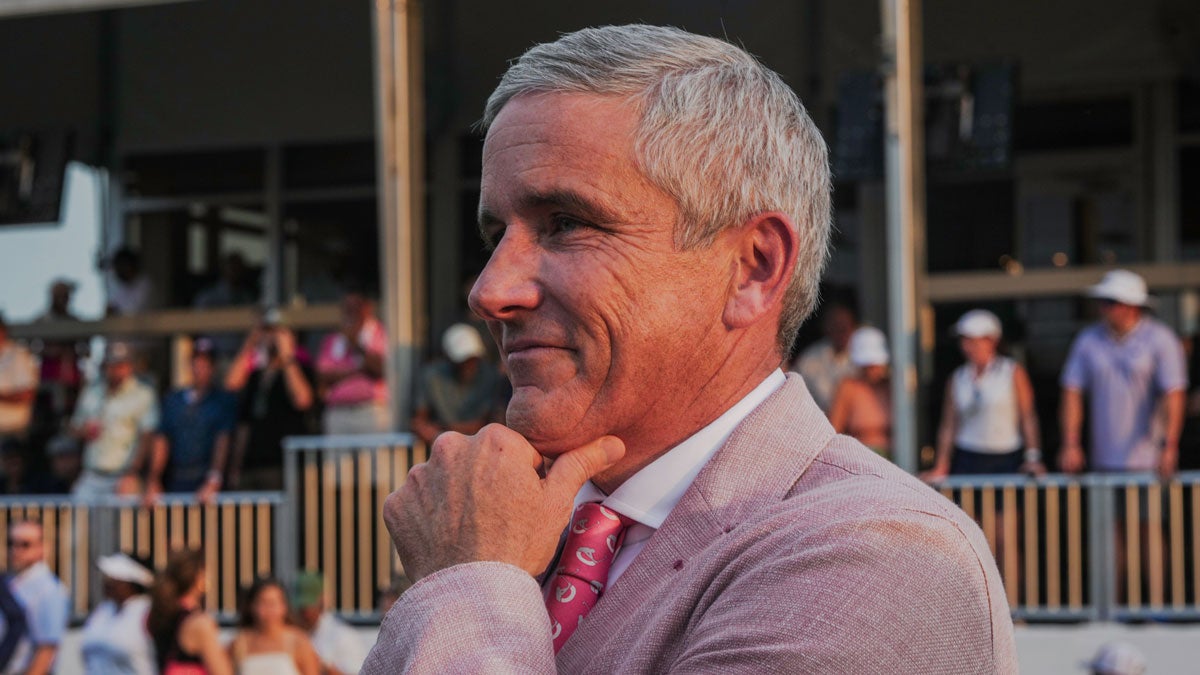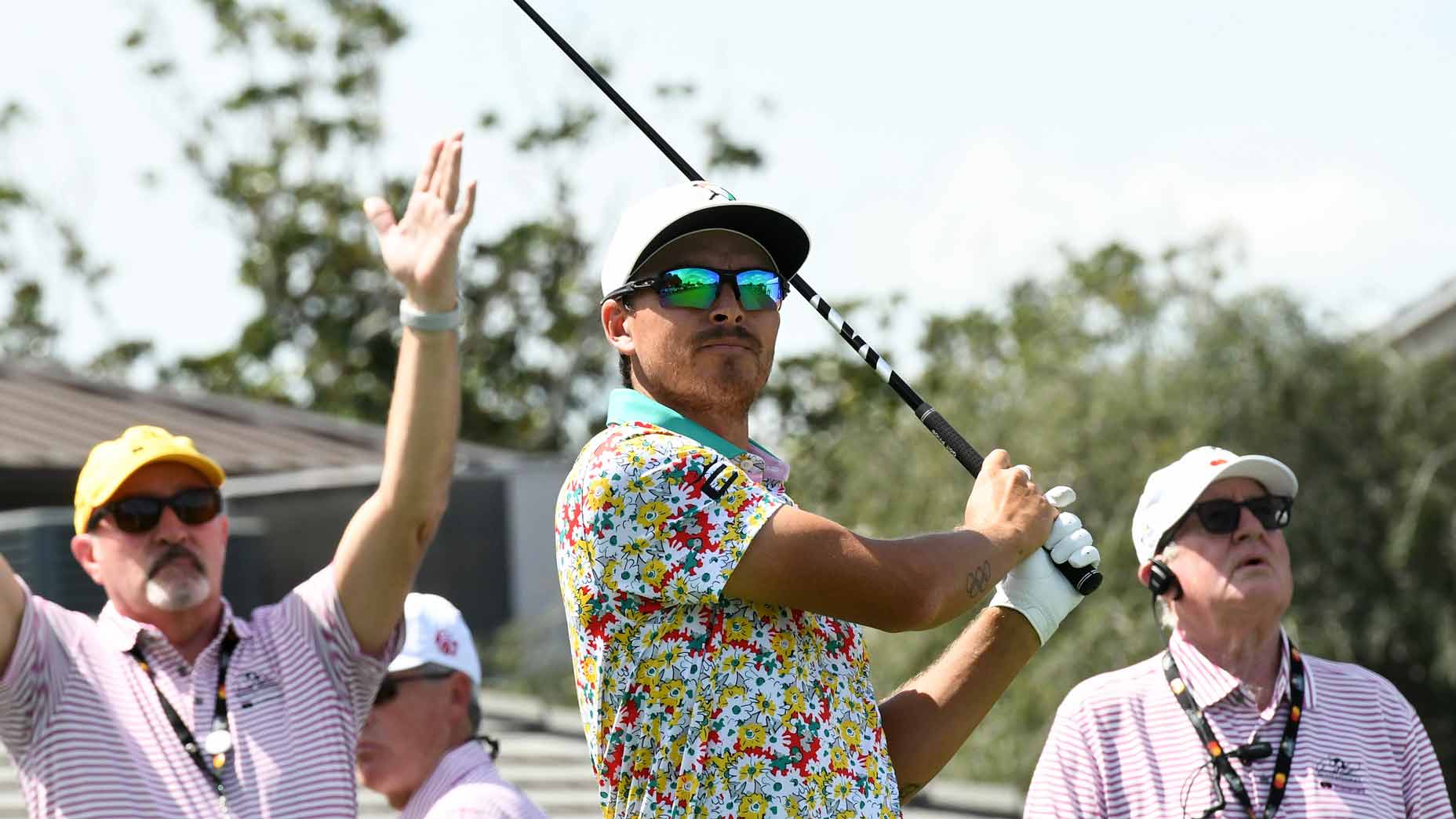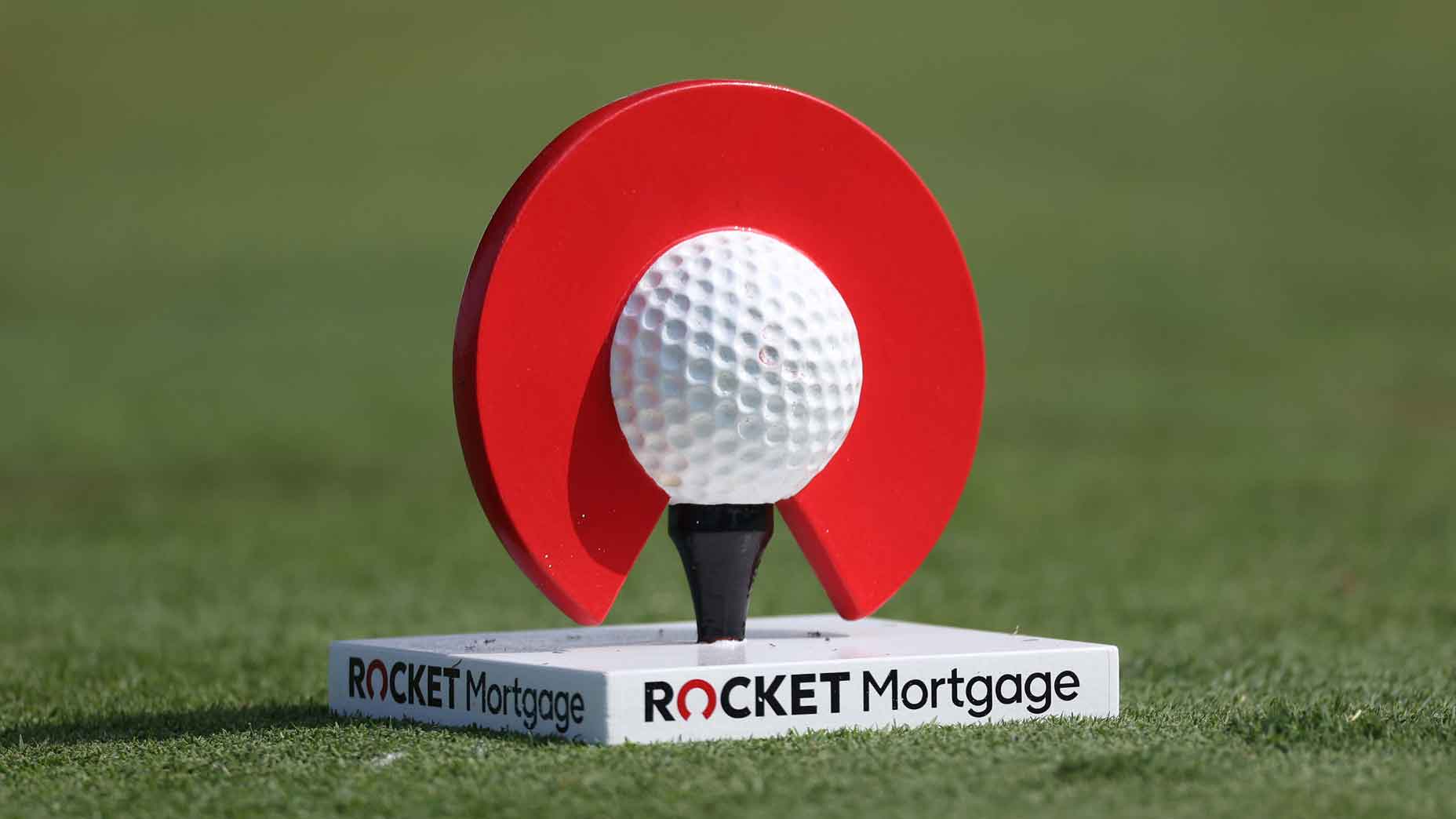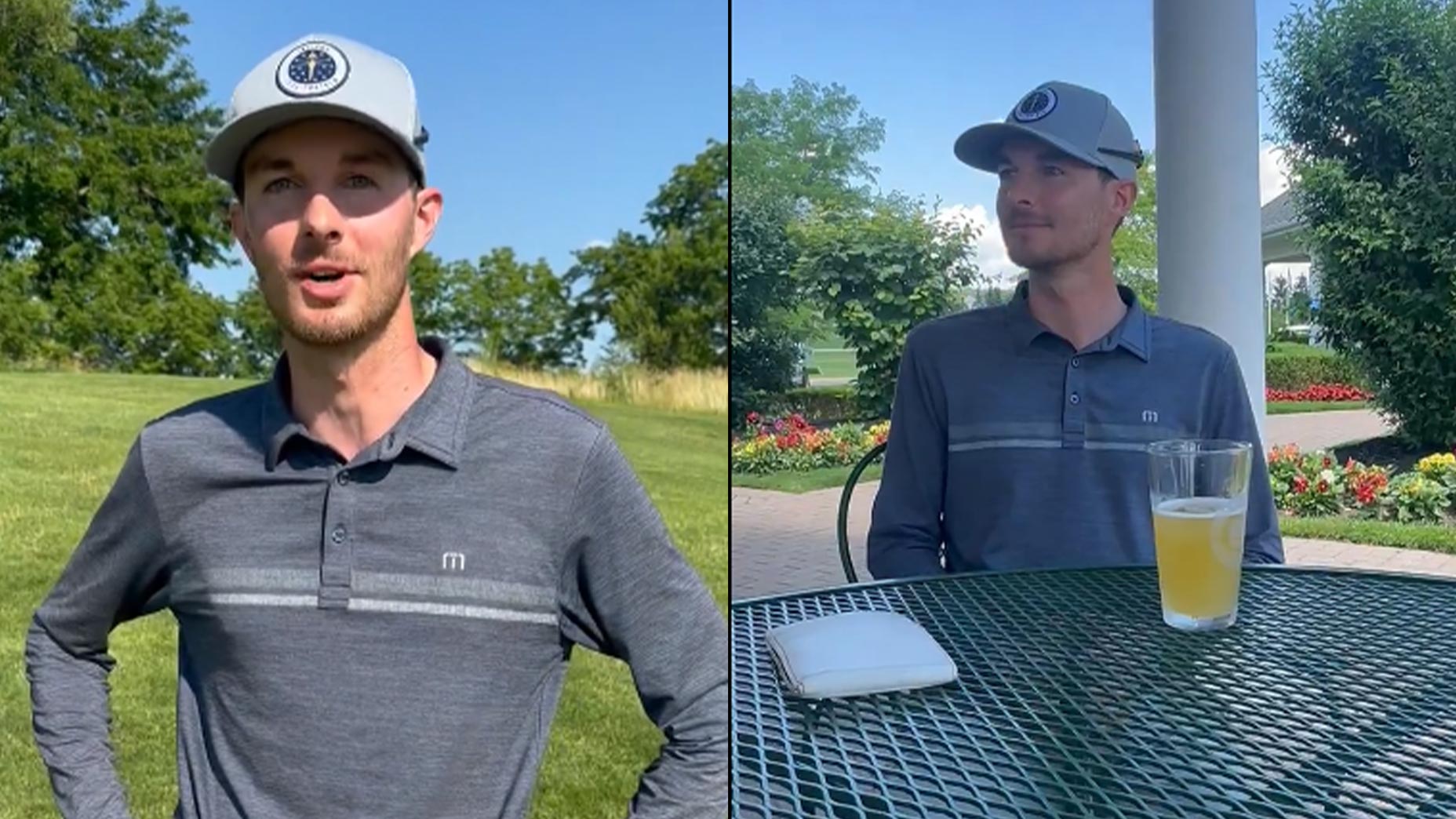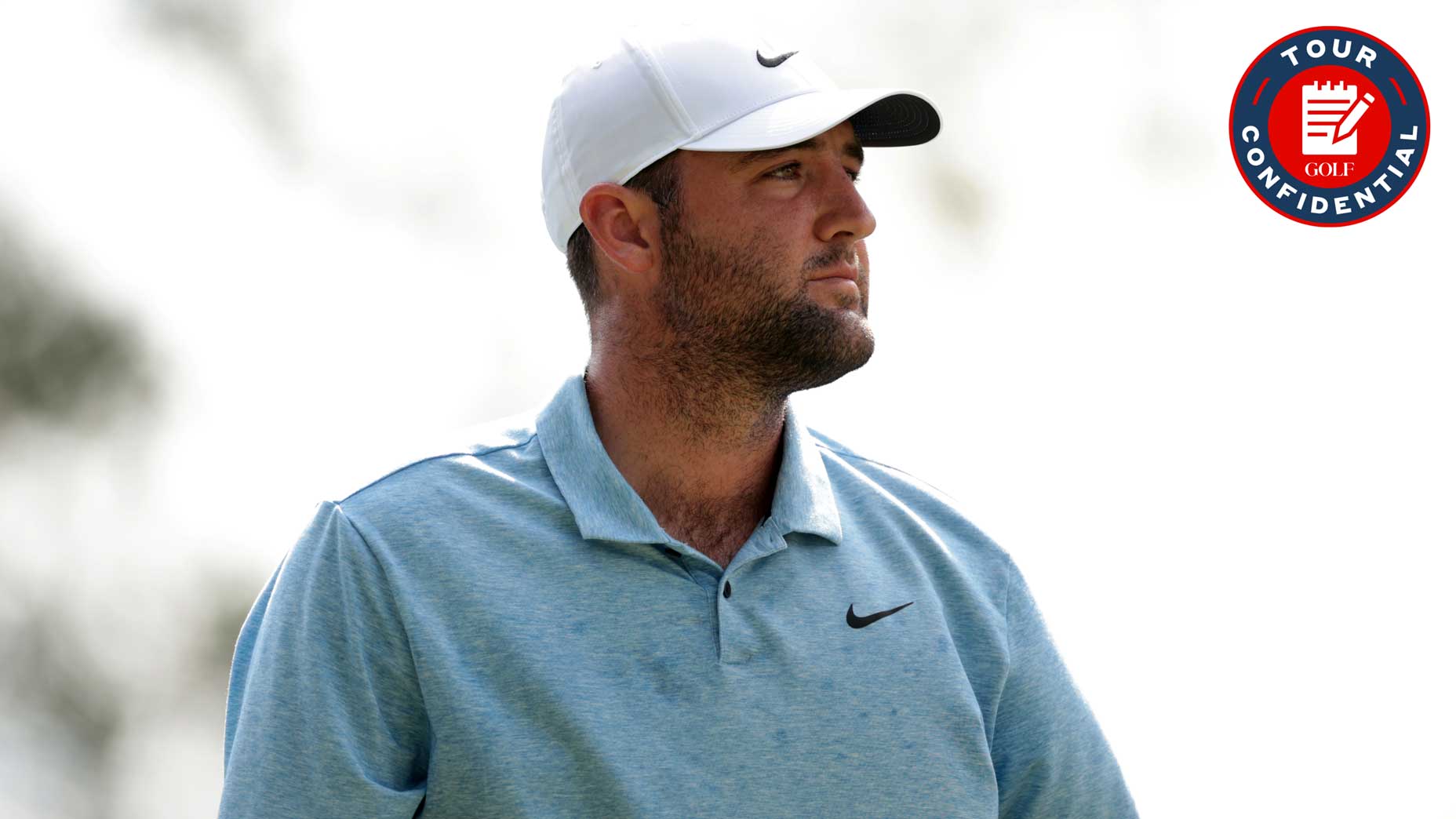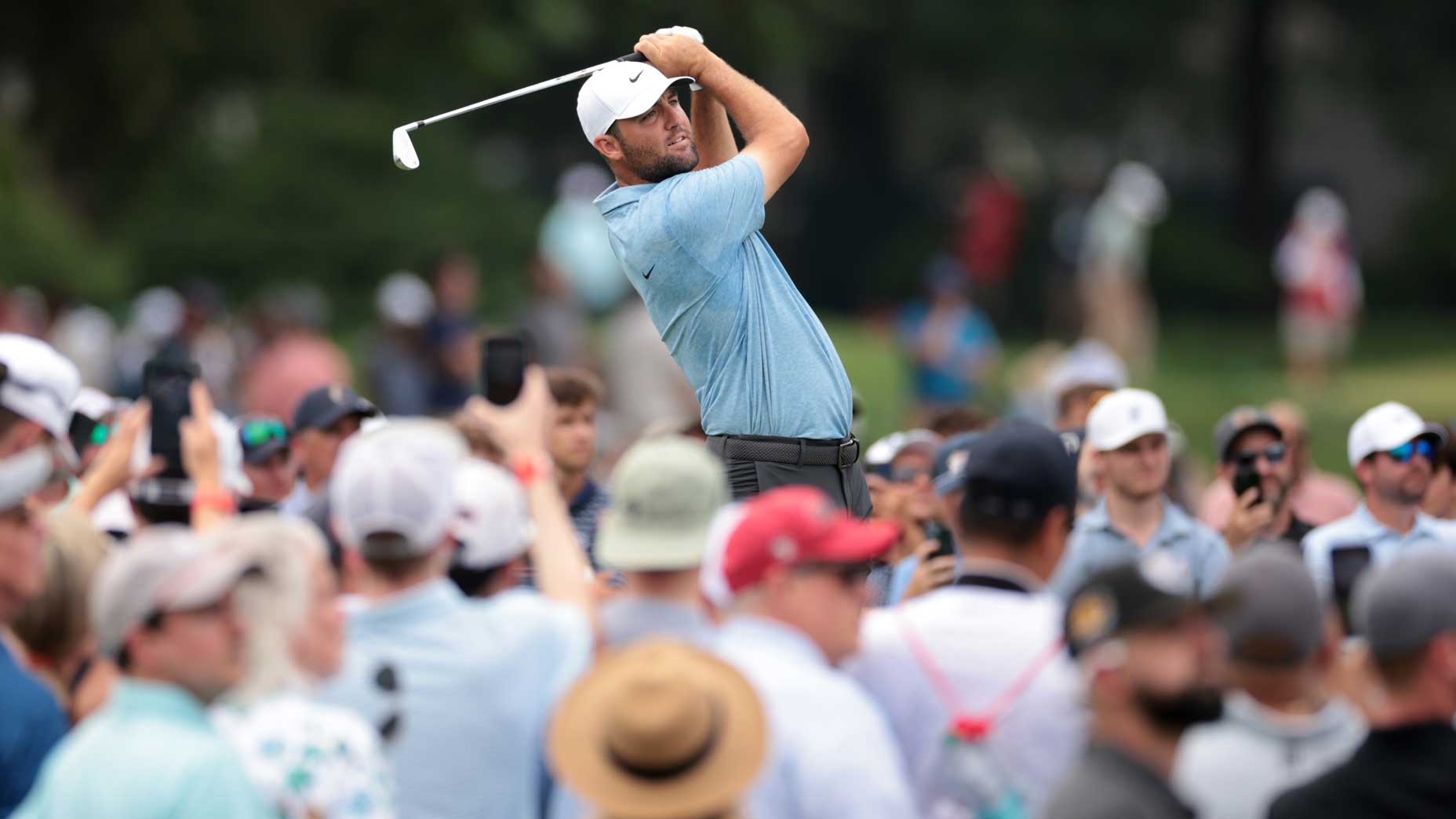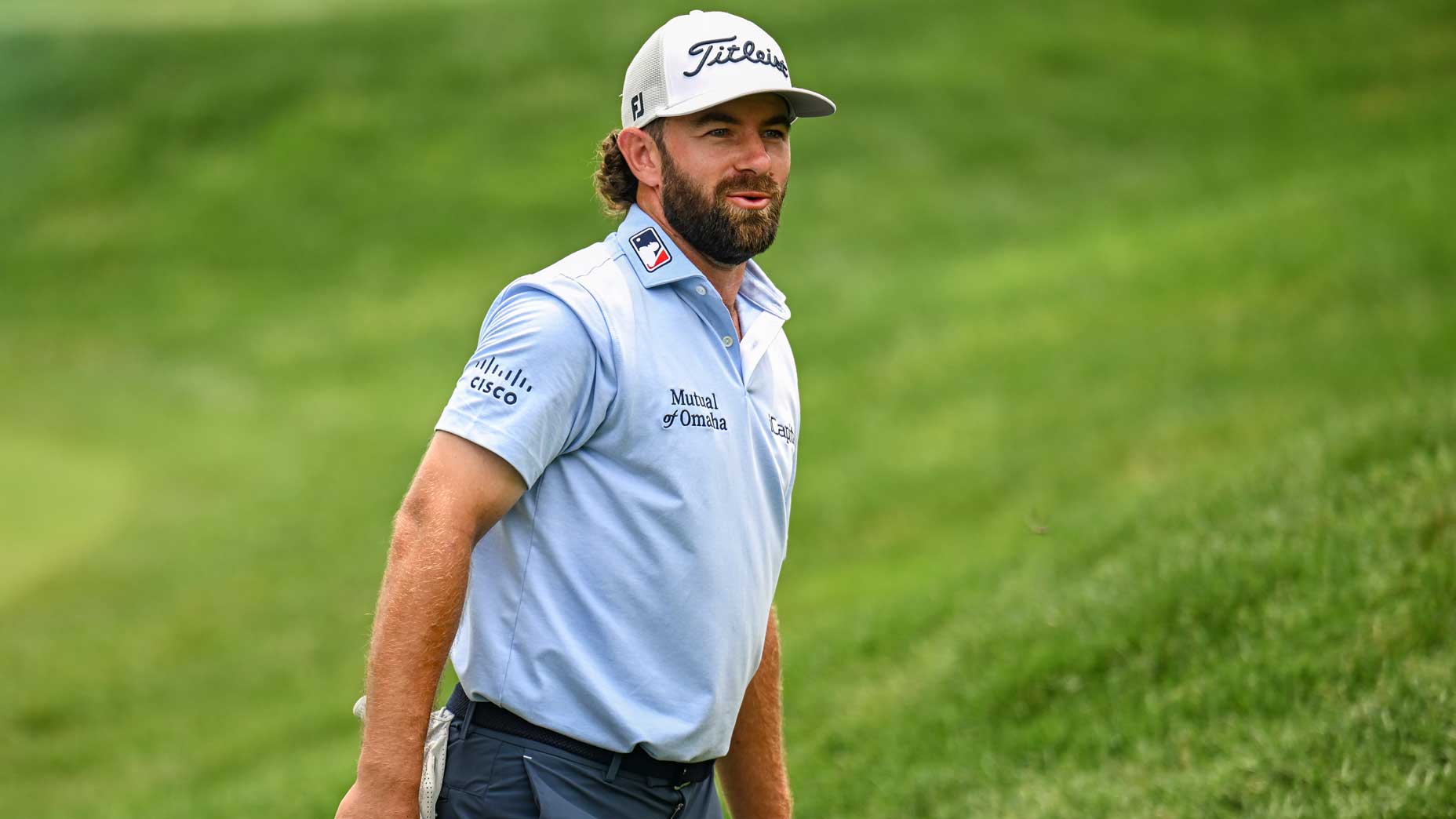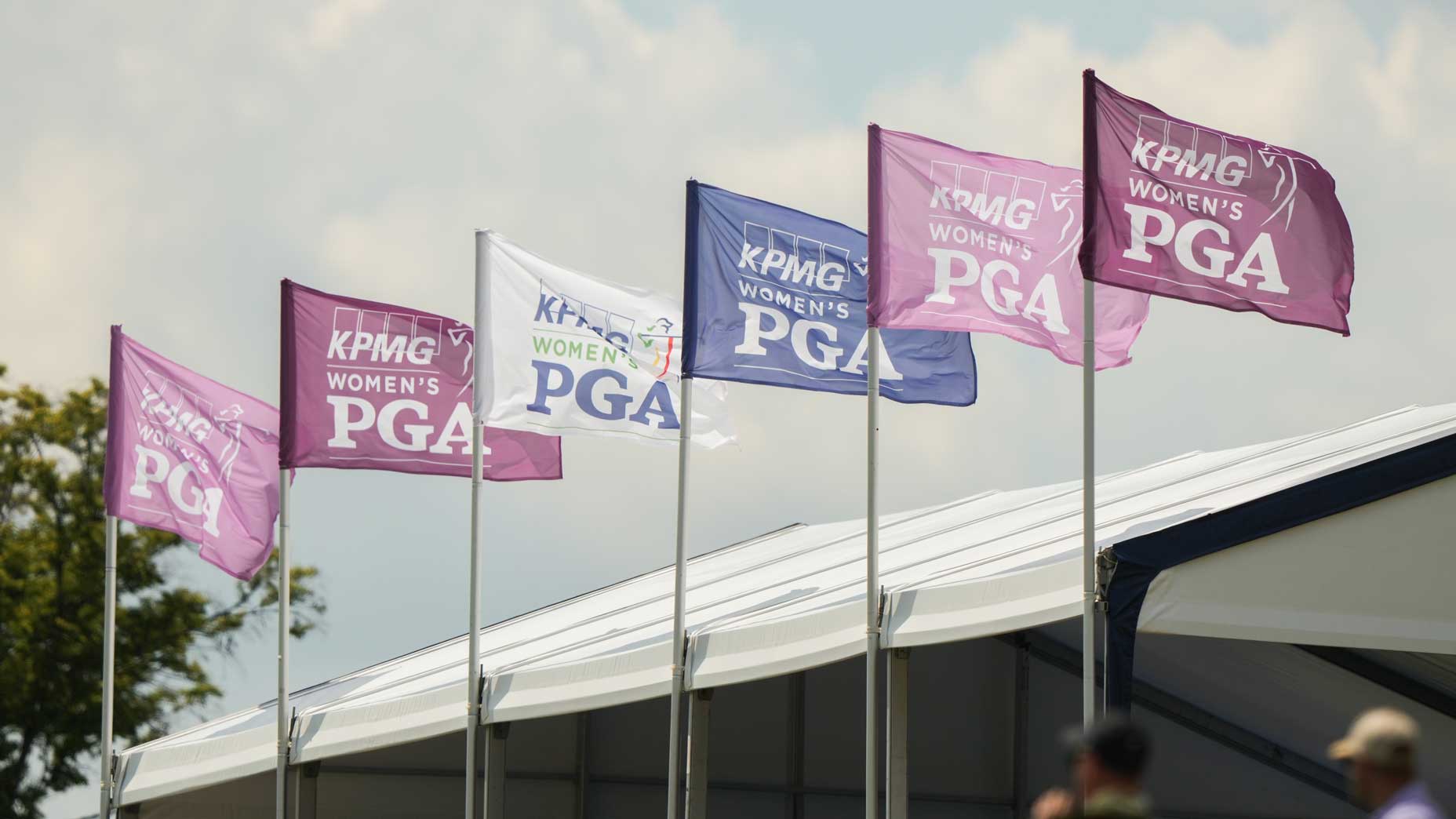A dummy’s guide to PGA Tour-SSG mega-deal: Answering 15 burning questions
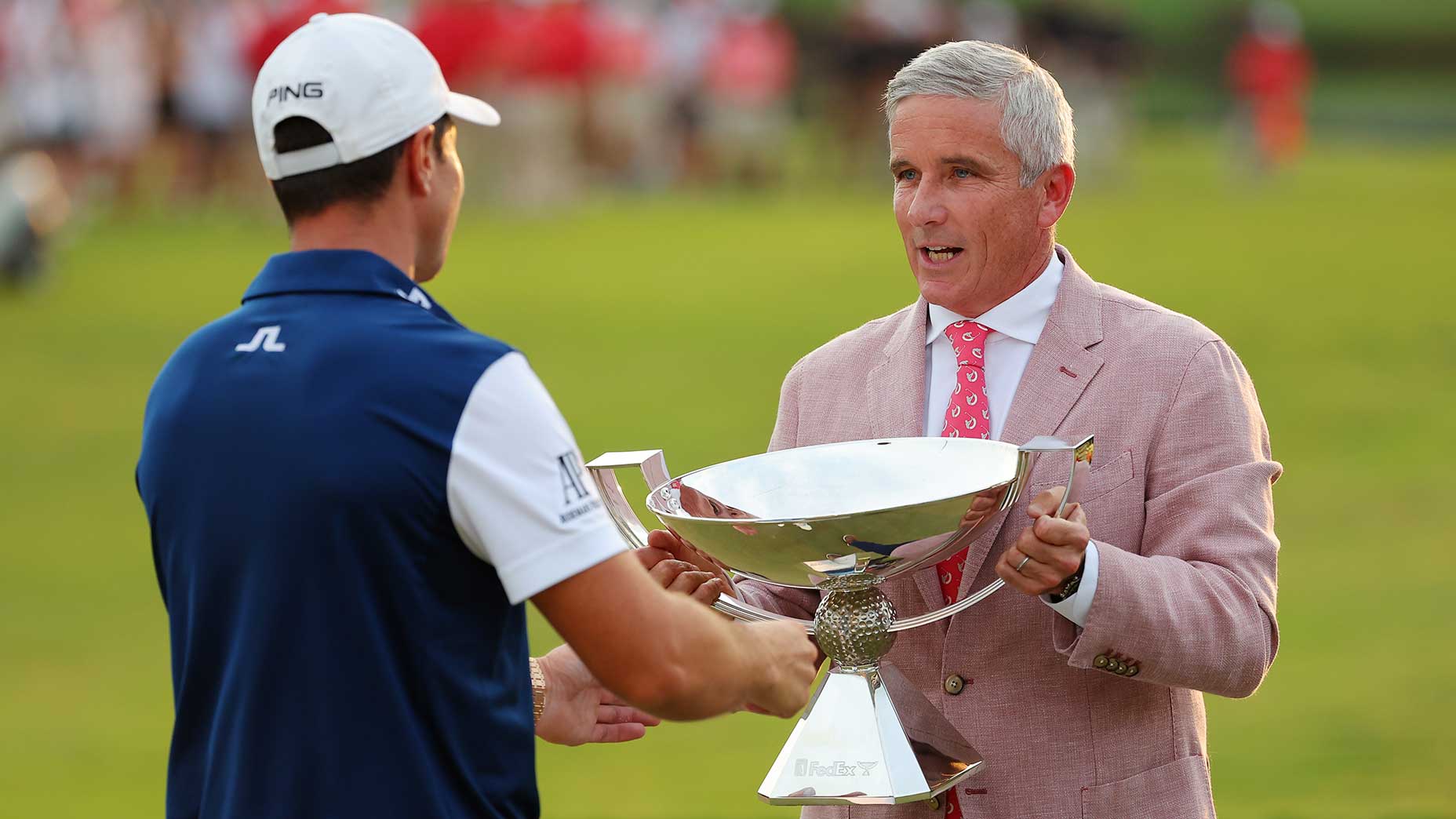
PGA Tour commissioner Jay Monahan announced a landmark agreement with the Strategic Sports Group (or SSG) on Wednesday morning.
Kevin C. Cox/Getty Images
You know what they say: one cash infusion is nice, but two is better.
At least, that’s what they’re likely saying around PGA Tour headquarters on Wednesday morning, the day that the Tour finalized a landmark agreement with a group of sports business titans for an investment worth up to $3 billion in golf’s largest professional tour. The news came as no surprise to most in the pro golf world, which has been warned about advancing negotiations between the Tour and the consortium of investors named the Strategic Sports Group (SSG) in recent months.
In the simplest terms, the agreement will welcome a group of outside investors into the Tour for the first time, see billions of dollars in equity stakes flow directly into more than 200 PGA Tour players’ hands and change the shape of the Tour business as we know it. But those are just the simplest terms. The nature and complexity of the agreement are considerable, and many details remain a mystery even to the players included on Wednesday morning’s 9:30 a.m. ET conference call with commissioner Jay Monahan and some members of the SSG.
What exactly are we dealing with here? And what do you, the average golf fan, need to know? Let’s dig in.
So … what the hell is going on?
The Strategic Sports Group (SSG) agreed to invest up to $3 billion in the PGA Tour’s business. The SSG investment — the first chunk of which will be $1.5 billion — will give the investment group an ownership stake in a new, for-profit entity called PGA Tour Enterprises, which will consist of most of the Tour’s moneymaking assets (tournaments, media rights contracts, etc.). The SSG guaranteed $1.5 billion to the Tour upon the finalization of the agreement Wednesday, and the deal values PGA Tour Enterprises at $12.3 billion, people with knowledge of the agreement said.
OK, now explain it to me like I’m 5.
A group of billionaire sports owners just bought a piece of the PGA Tour for what could amount to $3 billion.
That’s a huge amount of money for the Tour, whose current annual revenue comes in at around $1.5 billion per year.
Wait a second, who are the PGA Tour’s new partners, the SSG?
The SSG is a consortium of pro sports investors with billions in disposable income and deep ties to the private equity world. The group consists of the current and former owners of at least eight professional sports franchises and is led by Fenway Sports Group, owners of the Boston Red Sox, Liverpool FC and Pittsburgh Penguins.
In addition to Fenway, the SSG includes names like Arthur Blank (billionaire founder of Home Depot and owner of the Atlanta Falcons), Steve Cohen (hedge fund billionaire and owner of the New York Mets), Mark Attanasio (private equity billionaire and owner of the Milwaukee Brewers), Wyc Grousbeck (venture capital billionaire and owner of the Boston Celtics), and Mark Lasry (private equity billionaire and former owner of the Milwaukee Bucks).
Money is no concern for the SSG, but make no mistake, the group will seek to make a considerable return on its investment in the PGA Tour similar to the returns the group’s members have made in other professional sports.
Why did the PGA Tour decide to take the investment?
The cash infusion from the SSG serves to shore up the Tour’s bank accounts after a bruising, expensive battle with the Saudi-backed PIF, and promises to keep those players who have remained loyal to the Tour financially satisfied to the tune of some $1.5 billion in performance-based incentives over the next 5 years.
The money gives the Tour access to a deep Rolodex of sports business professionals whose stated goal is to help the Tour (and its players) make more money. Perhaps most important, though, the investment gives the PGA Tour a runway while negotiations for an additional investment with the Saudi Public Investment Fund (or PIF) drag through regulatory approval.
Why did the SSG decide to take on the investment?
Because pro sports ownership has been one of the most lucrative bets in the global economy over the last five decades, and because PGA Tour Enterprises allows the SSG to get in on the ground floor of a major American pro sports league while also networking and negotiating with a slew of desirable sponsors. The bet is that SSG ownership and connections can help the Tour if things go the way the SSG hopes, there’s no limit to the amount of money the Tour investment could bring in.
What changes for the PGA Tour under the agreement?
To date, the Tour has been entirely player-run and player-owned. The SSG investment means handing over a piece of PGA Tour Enterprises ownership to a group of outside investors. For the first time, players and PGA Tour employees will not be the sole financial beneficiaries of the PGA Tour’s moneymaking business.
What changes for Tour players under the agreement?
At the same time, the investment creates a massive and unusual opportunity for players: equity. Under the SSG investment, some 200 players will become “equity partners” — or receive a piece of ownership — in the PGA Tour. Those players will receive a piece of $930 million immediately, while an additional $500 million is set aside for additional players to earn their way into Tour equity beginning in 2025.
Otherwise, the Tour and the SSG agreed to a five-year player compensation guarantee, meaning those playing professional golf can feel confident that their short-to-medium-term futures are safe.
What does all this mean for the PGA Tour’s merger with the Saudi PIF?
The biggest question to come from Wednesday’s announcement surrounds what it all means for the Tour’s ongoing negotiations with LIV’s financial backers, the Saudi PIF. The short answer is that those negotiations will continue even after this agreement has been announced.
It is possible, though perhaps unlikely, that PGA Tour Enterprises’ valuation with the SSG could have some bearing on equity negotiations with the PIF (which are surely centered around the two parties’ perception of the Tour’s value). More likely is that the SSG agreement actually serves to help the PGA Tour’s negotiations with the Saudis, which will require untangling a Justice Department antitrust investigation before they can be completed.
What is the difference between the PGA Tour and PGA Tour Enterprises?
The PGA Tour will continue to exist as the governing body behind the Tour’s events and the non-profit charitable arm of the organization. But PGA Tour Enterprises’ focus will now become maximizing the amount of money coming into professional golf each year through sponsorships, TV contracts and tournaments. It’s not yet known how those efforts will look, but it’s safe to say that much of the Tour’s power has now been transferred into PGA Tour Enterprises.
Who will run PGA Tour Enterprises?
Jay Monahan will get a new job as part of the new agreement. The PGA Tour commissioner will serve as the CEO of PGA Tour Enterprises and as the chairman of a 13-person board that will have seven players (six of them the PGA Tour policy board’s player-directors), four SSG representatives and an independent director from the Tour’s policy board.
Under this board structure, the players will retain a slim voting majority, but the SSG’s representatives (Fenway Sports Group owner John Henry, FSG partner Sam Kennedy, Cohen and Blank) will have a say on all aspects of the Tour business.
Does the agreement with the SSG hurt the chances of a PIF deal?
Despite the similarities between the SSG agreement and a possible PIF agreement, the truth is that the negotiations couldn’t be more different.
The SSG negotiations were, for the most part, a business arrangement. The SSG presented a pathway to stable equity ownership, a cash infusion and a powerful group of new voices into the Tour business — while the Tour presented a pathway into a new kind of professional sports ownership for a group of deep-pocketed investors hungry for these kinds of opportunities.
Conversely, the PIF negotiations have very little to do with business. The Saudi piece of things is — and always has been — about getting the PIF to stop posing an existential threat to the PGA Tour. Any agreement with the PIF is exactly as important as it was 24 hours ago, because the thing that matters to the PGA Tour is ensuring the PIF will stop trying to put them out of business.
Why is the money important?
The billions the PIF hopes to invest in the PGA Tour is a nice carrot for the Tour, but the much more important financial piece in the short term was the agreement with the SSG. The $1.5 billion promised to players through the SSG agreement shores up the Tour’s defenses against any future LIV defections, and gives the Tour a considerable runway to continue operating its business while working through antitrust issues.
Wait a second … did you say antitrust issues?!
Yes! Because the Tour’s potential agreement with the PIF could serve to hurt the working conditions of pro golf’s employees (primarily players) by folding the PGA Tour and LIV together, the DOJ is investigating whether that merger could violate U.S. antitrust laws.
This is believed to be the biggest holdup in negotiations between the Saudis and the PGA Tour, and it’s unknown how long it will take for the two sides to receive the necessary approvals to move forward, if at all.
What does it mean for LIV?
Well, nothing as of right now. But Monahan’s admission on Wednesday that the SSG team had joined him in Saudi Arabia for a set of meetings with LIV/PIF chairman Yasir Al-Rumayyan indicates the direction things seem to be trending.
Big picture, what does Wednesday’s news mean for pro golf?
It means that we are one step closer to stability after two years marred by chaos. The SSG news gives the PGA Tour a guaranteed path to the future, and protects it against the bottom falling out in the event the PIF negotiations fall apart. The shape of the PGA Tour’s business looks considerably different now, but the big picture remains the same.
Now all eyes will turn to the Middle East, where negotiations with LIV’s Saudi backers are the next — and possibly final — domino to fall.
The author cautiously welcomes your feedback at james.colgan@golf.com.

